Magic In The Story: Written In The Stars
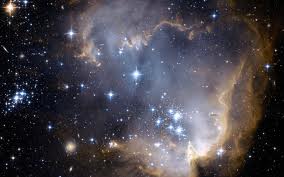 Today we continue our series on Magic in the Story with a form of so-called “magic” I believe many are confused about. This post, entitled “Written in the Stars” is an exploration of the difference between Astrology and Biblical Star-Reading (the search for meaning in the stars). As with all the other posts thus far, we will use the Narnia books as an example of stargazing since it fits our “fantasy fiction” category and is widely accepted and sold in the Christian marketplace.
Today we continue our series on Magic in the Story with a form of so-called “magic” I believe many are confused about. This post, entitled “Written in the Stars” is an exploration of the difference between Astrology and Biblical Star-Reading (the search for meaning in the stars). As with all the other posts thus far, we will use the Narnia books as an example of stargazing since it fits our “fantasy fiction” category and is widely accepted and sold in the Christian marketplace.
I hope, after reading this post, you will see that when given its proper place the search for meaning in the stars is not something to fret about (especially in fantasy fiction), that the Bible encourages us to do it and that doing so is, in fact, God-honoring.
(Enter Collective GASP Here!)
Before we dive in completely, I’d like to encourage you to check out the previous posts in this series if you haven’t. It may provide a bit of reference from whence we came.
Part 1: What’s the Big Deal <week one>
Part 2: The Two Faces of Magic <last week>
Part 3: Written in the Stars <—— YOU ARE HERE
When it comes to Narnia, the study of meaning in the stars (or astrology, if you prefer to use a single word) is, perhaps, one of the foundational elements that link all seven novels in the series together. Lewis was, himself, an avid astronomer. He had a telescope on the balcony of his bedroom and he often visited the Oxford observatory. But when it came to astrology, Lewis had been long fascinated with the subject of the stars and their meanings. He admitted that “…and who knows, perhaps in this [astrology] as in so many things the ancients knew more than we.”
Some have even convincingly speculate that the Narnia series is, in fact, secretly based on the seven planets of medieval astrology.
Lewis’ controversial dabbling in what some call “astrology” has been scrutinized over the years. In fact, many simply hear the word and toss it right out with magic as if both are a forbidden poison that will drag their authors and readers to hell in a hurry.
But astrology is by no means a definitive term. There is much to consider and scrutinize before we pass judgement on the books. I also found it intriguing to discover that Lewis himself was conflicted on the word as well.
So, What Do We Mean By Astrology?
Let’s start by defining the word “astrology” (since that is the hot word that concerns us most of all). As I prepared this post, I found it was not as easy a task to do as I thought it might be. In its broadest sense, astrology simply means the “search for meaning in the stars” which I contend is a Biblical truth as well and will show you soon. In medieval times the word was synonymous with astronomy (which none that I know are offended by).
In fact, Merium-Webster’s first definition is simply “Astronomy”, followed by a second definition that claims it to be “the divination of the supposed influences of the stars and planets on human affairs and terrestrial events by their positions and aspects”. I’m not sure about you but there seems to be quite a wide range of interpretations that can be explored between the two definitions. That is to say, simply saying “astrology” does not have as definite a meaning as one might first think.
To borrow a bit from last week’s post let’s assume there are two faces to astrology, just as there are two faces to magic. We’ll call these two “Deep Astrology” and “Dark Astrology”. Let’s agree to define “Deep Astrology” as the search for signs and wonders in the stars which act as heralds of coming events as ordained by the deep and all powerful Creator King. And we’ll define “Dark Astrology” as the worship of the stars as supernatural “influencers” over the daily acts of men.
Fair enough?
Okay. If you’re still not convinced, I beg you to stick with me. I think I can win you over with Biblical truth on the matter.
Written in the Stars (Deep Astrology)
If you have never had the pleasure of watching the film “The Star of Bethlehem”, I’d invite you to do so at your earliest opportunity. It was this film that opened my eyes to the truth of Scripture about the nature of the stars and their purpose. I’ll be borrowing some of the points here from it’s research to help us in our own unraveling of star meaning.
Why did God create the stars in the first place?
Genesis 1:14 says “And God said, “Let there be lights in the expanse of the heavens to separate the day from the night. And let them be for signs and for seasons, and for days and years…”
Job 9:9 declares that God is the creator of the constellations: “He is the Maker of the Bear [Ursa Major] and Orion, the Pleiades and the constellations of the south.”
Psalm 19:1-4 says that the stars communicate to us, “…The heavens declare the glory of God; the skies proclaim the work of his hands. 2 Day after day they pour forth speech; night after night they display knowledge. 3 There is no speech or language where their voice is not heard. 4 Their voice goes out into all the earth, their words to the ends of the world…
Not only that, but Paul believes the stars had a specific message to communicate, one that everyone could see and know. Paul believed that all the Jews of Christ’s day had heard that the Messiah had come, and quotes the stars mentioned in David in the Psalm above as the reason.
In Romans 10:17-18 he says, “17Consequently, faith comes from hearing the message, and the message is heard through the word of Christ. 18 But I ask: Did they [the Jews] not hear? Of course they did: “Their voice has gone out into all the earth, their words to the ends of the world.”
The creators of the Star of Bethlehem series have this to say:
“Paul is taking the position that something has happened in the stars which indicated to the Jews of his time that the Messiah had come. As we shall see, the apostle Peter elsewhere forcefully makes the same argument. Of course, this argument has exactly no force unless something had happened in the stars. The fact that both men employed this line of reasoning shows they are making the same assumption. They assumed that their listeners were aware of celestial phenomena associated with Christ.”
But the ultimate authority on the matter of looking to the heavens for signs would be Christ himself. In Luke 21:25-28 Chris declares that…”there will be signs in sun and moon and stars,…” and that “when these things begin to take place, straighten up and raise your heads, because your redemption is drawing near.”
In other words, Christ is telling us that something will be happening in the heavens that we should be looking for and that when it happens, we will know the end is near.
Hmmmm…sounds a bit like “star reading” to me, doesn’t it?
At the very least, it should give us the freedom to understand that the stars can be messengers of major events which God has ordained to happen in our history – events that have been foretold long before they occur. In fact, isn’t that exactly what the magi seeking Christ said. “We have seen his star in the heavens…”
With that in mind lets take a quick look at how Lewis uses the stars in his books and if it is supported Biblically.
Here are a few specific uses of star-searching as they appear in the Narnia books:
1. In Prince Caspian, Cornelius (a minor magician) looks to the stars and ponders the meaning of two ‘noble planets’ crossing in the skies. He explains the event to Caspian: “Look well upon them. Their meeting is fortunate and means some great good for the sad realm of Narnia. Tarva, the Lord of Victory, salutes Alambil, the Lady of Peace.”
2. In Dawn Treader, the children visit two stars in human form. They seem almost angelic in their appearance and provide guidance and aide to them.
3. In Last Battle, a centaur claims ‘If Aslan were really coming to Narnia the sky would have foretold it. If he were really come, all the most gracious stars would be assembled in his honour.’
In each of these cases, the stars are subject to a greater authority. Nobody in these passages are worshipping the stars or claiming that the stars alone are the source for the events which are happening (which is where the deception of Dark Astrology can lead us). The stars are merely messengers, working on behalf of the greater authority of Aslan’s Deep Magic (even if it is not being expressly identified as such in every instance).
In medieval cosmology, the Earth was at the centre and surrounding it in concentric circles were seven heavens, each governed (under God) by a particular planet or celestial body with its own distinct characteristics and influences; and around and beyond them all was the Empyrean or dwelling place of God. It was therefore a cosmos characterized by order and teeming with life and personality, not a dead, empty ‘space’.
The ‘Great Dance’, in which Lewis imagines the stars and planets as participants, are dancers in the court of heaven, praising God and forming patterns of deep meaning and great beauty. Indeed, the stars in Narnia are not lifeless orbs but sentient, even angelic beings – which means that their movements and positions in the sky can legitimately be intentional, meaningful and above all relational.
The Stars Are Writing? (Dark Astrology)
So, herein lies the danger.
Many determine Astrology to be the “influence of stars and planets on earthly affairs and human destinies”. This is a false belief. By this definition, we would be wise to flee. As we saw last week, it is always lie of Satan when the created are served over their creator. If we elevate anything or anyone other than God as the source of worship we become twisted in our thinking and are clearly in the wrong.
Job warns us in Job 31:26-28, “If I have regarded the sun in its radiance or the moon moving in splendor, so that my heart was secretly enticed and my hand offered them a kiss of homage, then these also would be sins to be judged, for I would have been unfaithful to God on high.”
The royal astrologers of the Babylonian court were put to shame by God’s prophet Daniel (Daniel 1:20) and were powerless to interpret the king’s dream (Daniel 2:27). God specifies astrologers as among those who will be burned as stubble in God’s judgment (Isaiah 47:13-14). Astrology as a form of divination is expressly forbidden in Scripture (Deuteronomy 18:10-14). God forbade the children of Israel to worship or serve the “host of heaven” (Deuteronomy 4:19). Several times in their history, however, Israel fell into that very sin (2 Kings 17:16 is one example). Their worship of the stars brought God’s judgment each time.
But it was the worship of the things that earned the judgement, not the searching.
Those who believe their daily lives are determined by the stars themselves are focusing on the wrong thing. God is the Author of all, not the stars. We are not to confuse this.
Also, nowhere in scripture does God tell us to live our lives by the stars. On the contrary, we should be careful of this. We should always look to Scripture alone for guidance. His Word has all the answers we need, the stars are merely there to support His truths and reinforce the fact that God alone is in charge. The signs we find in the sky will always bring glory to God.
Conclusion
Having messages hidden in the stars is nothing new. The order of the stars are awe inspiring and a key element in my coming novel (which will be released soon on Codebearers.com). In the new book (authored by my brother and I) the stars are disappearing and mankind is searching for answers as to how this is even possible.
I’m glad that we serve a God who is big enough to ordain the position of all the stars and planets in perfect time with human history. He has pre-ordained it all, and it is a good thing to be reminded of his unchanging plan when we turn our eyes to the stars.
Looking forward to your comments.



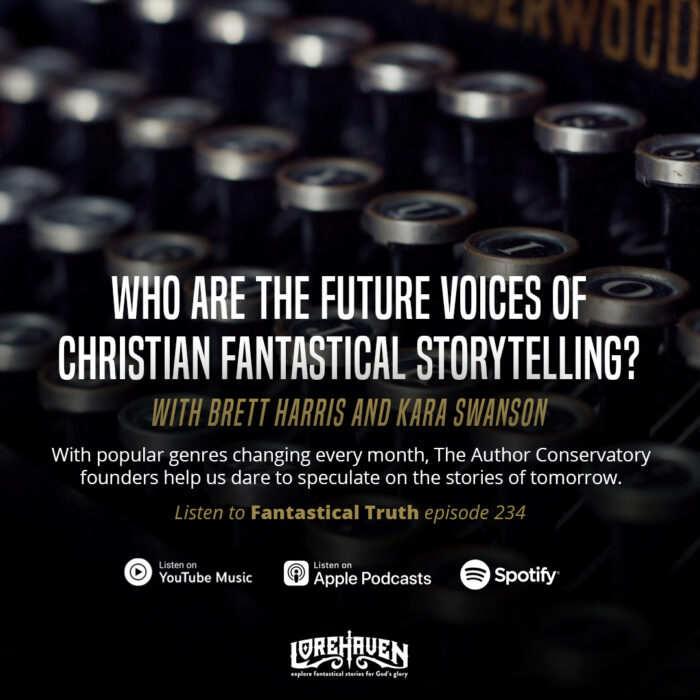



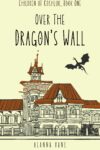





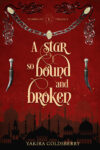
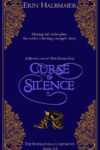

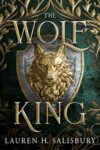


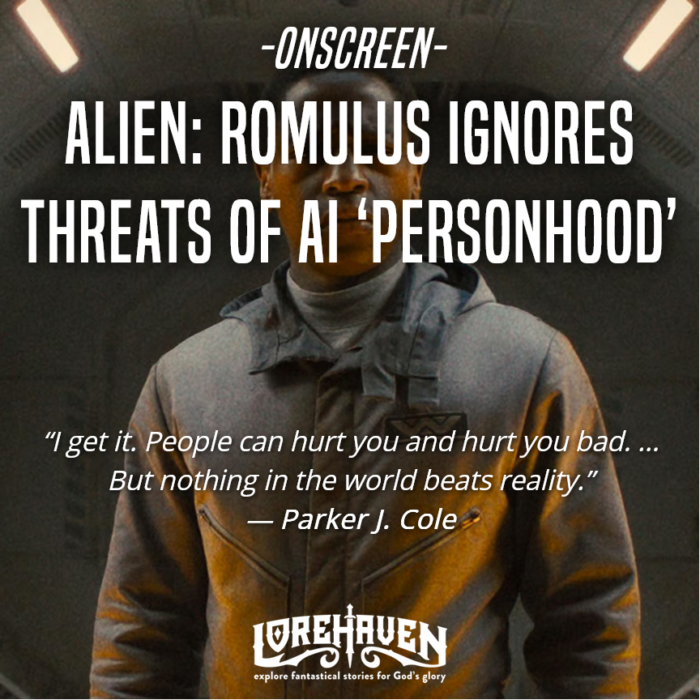

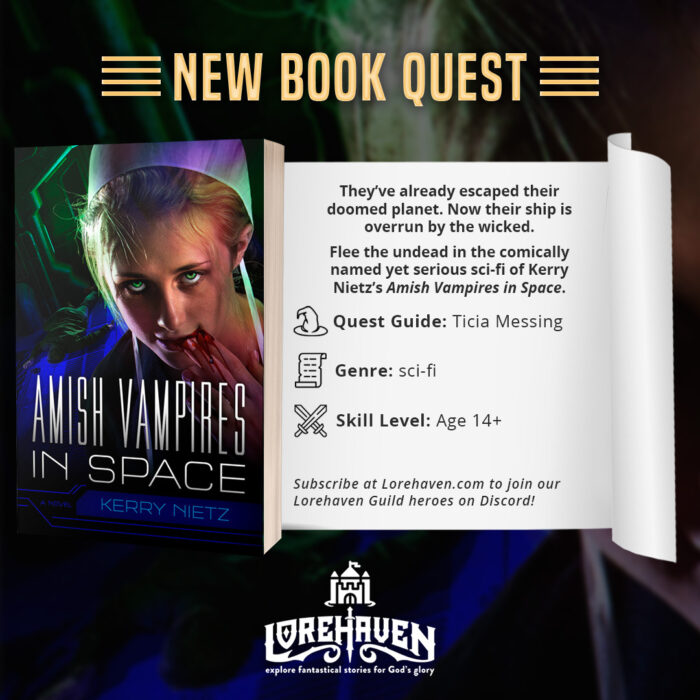
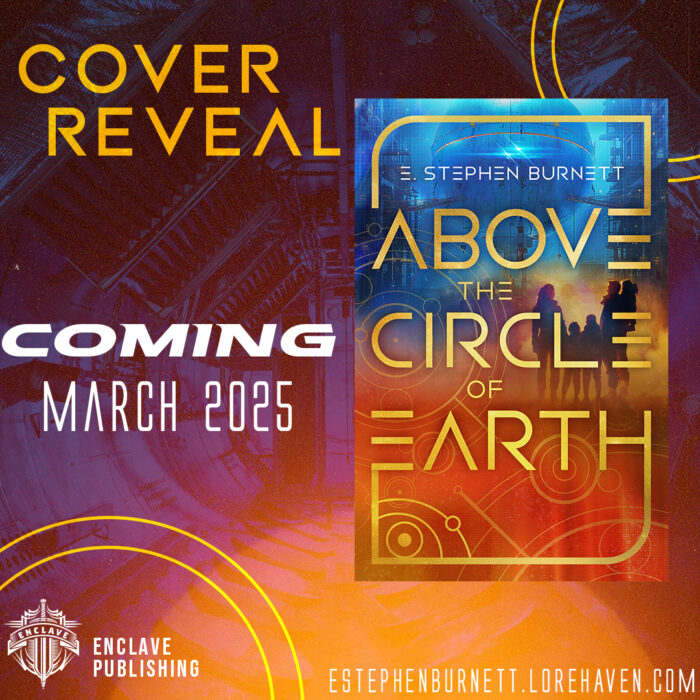










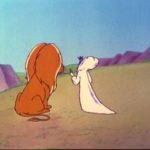




I actually read the Narnia Code earlier this year–it seemed a bit wide of the facts, but it was orthodox in thinking. And realizing that the stars proclaim truth is different than saying they control things.
I’ll admit, I’ve only read summaries of the Narnia Code. My research for this blog post made me aware of it. You really should watch the Star of Bethlehem DVD though. It will astound you and leave you shouting… “Let the heavens declare the glory of God!”
I don’t think I’ll be the only reader to gasp and say ‘But, but, but…Cornelius observed the dance of the stars in Prince Caspian.” Other than that, this was interesting.
One aspect that I think we often overlook is the evolution of church history. Most scientific branches use the Greek suffix -ology to indicate “the study of.” When it comes to the study of the heavens, a separate word had to be used, because astrology had been appropriated for divination instead of scientific research. In English, anyway, I guess. During a recent research foray into astronomers, I was surprised to find how many of the great scientific minds doubled as spiritual scholars. Some of it was flawed faith–very murky confusion about supernatural phenomena, the spiritual meanings behind the movements of the heavens, yada yada. Weird stuff. (But back in the day, becoming a musician was a steady form of work; becoming a scientist was as unpredictable as modern rock star fame and folly.) But we now have great philosophical divisions between the spiritual, the scientific, and the speculative. These divisions weren’t always present. It seems there was more faith in education. More room for God in various branches, more hope that all roads of study would eventually lead back to Him. And if your studies didn’t lead you back, there was always excommunication….
Are you familiar with Chuck Missler? He teaches sometimes on the Hebrew zodiac and some of the more fearless speculation about the Scriptures. http://www.youtube.com/watch?v=3W9Hx-rObNk
Okay, this is my embarrassed face. (“)
I fixed the Prince Caspian quote. I must have gotten ahead of myself in thinking of Dawn Treader. Thanks for the correction.
I’ve not researched Chuck Missler. Now, I must!
Ahh, good ol’ Chuck Missler! He gets out there sometimes, but his fringe-ness is what makes him so endearing.
I think the gospel in the stars stuff makes perfect sense–I mean, God put them there–and I don’t see why people get all freaked out about it. Virgo IS the Virgin and Leo IS the lion–it’s there, we didn’t make it up. And it’s plain to see the one constellation with the guy fighting the serpent, and his foot is on the serpent’s head, even while it’s biting his heel.
Nice way to tackle the astronomy/astrology debate, as well as how it works its way into fantasy. As a kid, I always wondered about the Narnian star-watching myself. As a teen, reading the Silmarillion, I just LOVED how that one dude became the dawnstar with the Silmaril on his brow. And the light of that star/the Silmaril is the light in Frodo’s phial.
Will I be excommunicated from this site if I say I have not read the Silmarillion?
Not saying I haven’t, mind you. I’m just wondering what might happen if I didn’t read that portion of Tolkein’s essential fantasy.
*cough
The Silmarillion is best read as a reference tome. “Who is this Beren and Luthien that Aragon’s singing about?” “What in the heck are the Silmarils?” “Who was Morgoth, of whom Sauron was but a servant?”
I mostly read it for bragging rights. 😀
Excellent post, Chris. I think sometimes Christians aren’t sure of what they believe. Being afraid of crossing some unseen line (“unseen” because they don’t know the scriptures well enough nor walk with the Lord closely enough to discern truth from deception), they view with distrust anything they weren’t taught about in Sunday School.
As Galadriel said, there’s a huge difference between the stars proclaiming the truth and saying they control things. In the former case, they’re like angels (speaking of Narnia…) serving as God’s messengers, whereas in the latter case, they’re part of “the Universe,” that impersonal power to which the New Agers like to attribute power and wisdom.
And, though I’m not here to promote my books, it seems appropriate to mention that Book #1 in my Gateway to Gannah series, The Story in the Stars, deals with what we’re discussing here. It touches on the theory that God proclaims the gospel message through the constellations. If you like this subject, please check it out!
Okay, the commercial’s over; you can come back in from the kitchen now.
Thanks, Yvonne. I must admit I’ve found myself wondering about that “invisible line” a lot with this post for fear of opening pandora’s box with this subject. And yet, God’s Word is so refreshing when you consider how often he writes of the stars proclaiming his message to us.
Your book sounds great. I’ll have to add it to the must read list.
I had never heard of the possibility of there being anything remotely redeemable or not-evil about astrology. Growing up, the word “astrology” was used as a near synonym for “New Age.” This take on the subject is interesting. Life must have been so special back in the Middle Ages and prior periods, looking up in sheer awe at the heavens on a clear night!
Even today, the stars are really the last metaphor of eternity that hasn’t been ruined by technology. The sea used to be a metaphor of eternity, but now that we can quantify the oceans and skip over them in a few hours, the Sea has probably lost much of its ancient power. However, the stars remain out of our grasp despite increased knowledge of astronomy. They still remind us that there are realities far beyond the scope of humanity.
In Narnia, there’s sort of an uneasy fusion between paganism and Christianity. It’s like the wise men; you have many virtuous pagans who know of Aslan, but still use their own magic in order to try and understand him. Cornelius used magic, sometimes forbidden magic, to locate Susan’s horn, and somehow find any trace of the old Narnia that Miraz had forced into hiding. Roonwit was living in a time where Aslan was so much a memory that it was easy to deceive talking beasts into believing a donkey in a stable was he. Generally none of the people who actually knew Aslan resorted to these things.
I also think that there really wasn’t much proof that either form of astrology was effective in Narnia. The point of Cornelius watching the conjunction as well as all the stargazing wasn’t to foresee events; it was to get Caspian alone and in private to teach him about old Narnia. Roonwit’s predictions were very general, and more of an aside; he as much as anyone was completely blindsided by events. It felt more like a folk wisdom or pastime of the educated than something that really worked.
For stars and believers, I’m not sure. These are omens, and these were often the province of the pagan mind trying to seek the will of the gods in events. Stargazing is a lot more benign than cutting open animals or convicts to see the future in someone’s intestines. I wonder if the biblical ones you mention are more for unbelievers than us. We have the Holy Spirit in us, who “will teach us all things and bring all things to our remembrance (john 14:26) so have One who is superior than omens or portents. But for pagans, the omen often created a sense of divine discontent. Something is happening, and we must seek the gods to answer it. God can act despite all this to bring a person to the truth.
An interesting article but it could be read to mean that the horoscopes and that are alright. Also I know a young girl who claims and believes the stars are talking to her so I’d be careful with this. It’s not just something abstract. It hurts real people, not just story worlds.
Indeed it does hurt real people. Yet I would caution that the reason why people accept such things is that they do not believe in the real God and how He chooses to reveal Himself, which is not through stars and soothsayers and diviners but through His Word and prophets (Deut. 18). The sin starts in the heart, not in the horoscope.
From my understanding, Christopher‘s point here is that believing that the stars may somehow reflect the will of the Prime Mover is different than believing they are prime movers themselves — that is, somehow in control of events and people’s destinies.
continuously i used to read smaller articles which as well clear their motive, and that is also happening with this post which I am reading here.